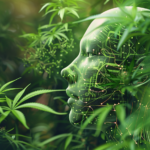Legislative think tank Washington State Institute for Public Policy (WSIPP) published results from a benefit/cost analysis report on September 1, which evaluated the affects of the implementation of Initiative 502. Also known as I-502, the bill allowed legal adult-use sales of cannabis in Washington state, as well as creation of infrastructure to regulate sales.
Among other study results, WSIPP found that since implementation of I-502 there has been no subsequent increase in under-age cannabis use, despite speculation by cannabis opponents that use by minors would increase with legalization.
After analyzing data collected from 2002-2016, the report found that “… across grades six, eight, ten, and twelve, cannabis use indicators have been stable or fallen slightly since I-502 enactment. Beliefs that cannabis is difficult to obtain and that using cannabis is harmful began a downward trend in 2006, especially among older students. Since 2010, the view that cannabis is difficult to access has been stable or increased. The downward trend in perceived harm of cannabis use stabilized from 2014 to 2016.”
The report is one of several WSIPP will produce over a twenty-year period, analyzing the affects of I-502. Besides analyzing data on underage cannabis use, the researchers also examined adult use data, as well as data on admissions for treatment of cannabis abuse, and criminal convictions related to cannabis.
Seattle Times writer Bob Young, in a post, said the results were “not surprising as they were based on a biannual survey by the state Department of Health of students in the sixth, eighth, 10th and 12th grades released earlier this year.”
The WSIPP report comes shortly after U.S. Attorney General Jeff Sessions criticized Washington State’s legal cannabis system in an early August letter to state legislators. Washington State Attorney General Bob Ferguson and Governor Jay Inslee responded to the letter, and told the Seattle Times that Sessions’ criticism was “inaccurate and out-of-date.” Ferguson also urged Sessions to “Do your homework, get good information,” in the same article.
In related news; last December, The Washington Post noted a study published on the JAMA Pediatrics website that examined underage use in Colorado and Washington State from 2010-2015, and including 254,000 participants. That study’s findings were somewhat contradictory to WSIPP’s results, and found that use increased slightly in eight-to-tenth graders in Washington State, over a two-year period when I-502 was initially implemented. The same study found no change in underage cannabis use in Colorado, from 2010-2015.
In yet another study story, recent results from French researchers were featured in mid-August on CNN. Published in the journal Pediatrics, the study showed a 133 percent increase in pediatric emergency room admissions resulting from the affects of accidentally ingesting cannabis, from 2004-2014. Calls to poison control hotlines for accidental cannabis exposure increased 312 percent during the same time period. Cannabis is illegal in France, but reportedly the country has the highest level of cannabis consumption among European countries.











